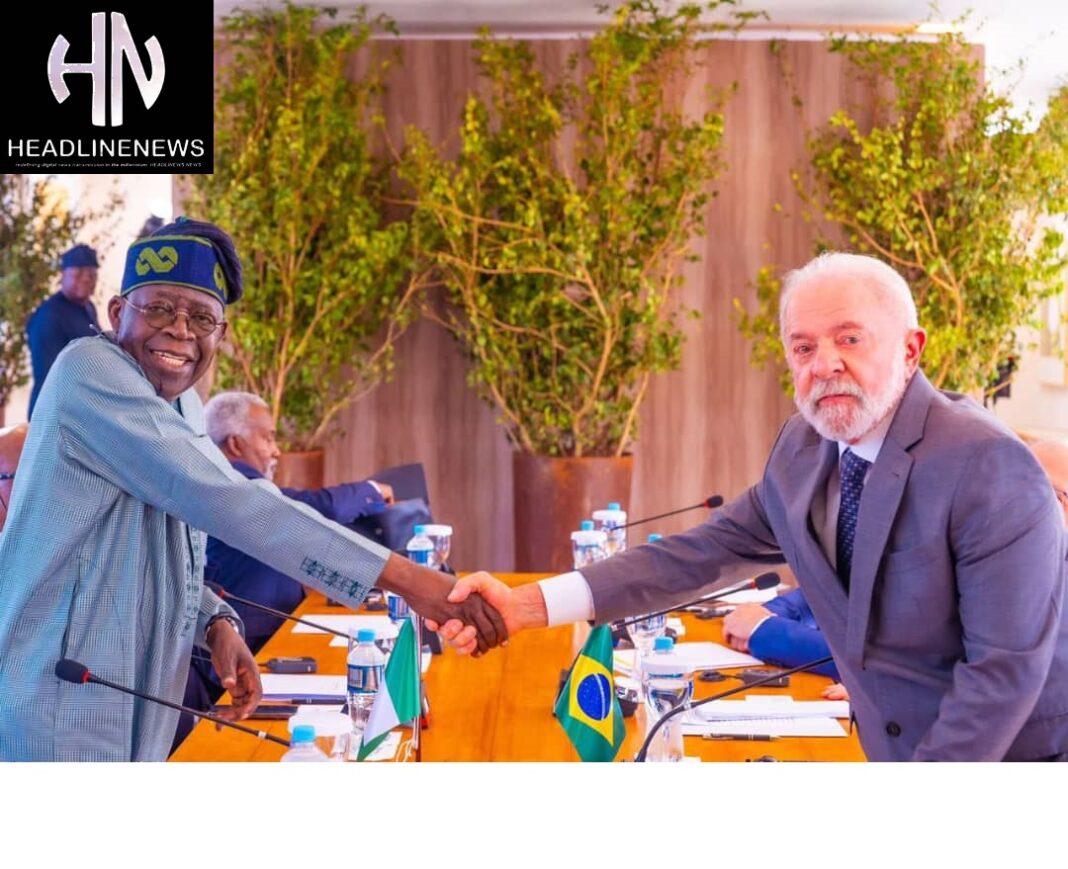US President Donald Trump has threatened to impose an additional 10% tariff on Nigeria and other countries for aligning with what he described as the “anti-American policies of BRICS.” The announcement was made on Sunday evening through Trump’s Truth Social platform, creating fresh tensions in global trade relations.
“Any country aligning itself with the anti-American policies of BRICS will be charged an ADDITIONAL 10% tariff. There will be no exceptions to this policy,” Trump declared, though he did not specify which particular BRICS policies he considers anti-American.

Nigeria’s BRICS Partnership
Nigeria officially became the ninth partner country of BRICS on January 17, 2025, when Brazil announced the country’s formal admission during its pro tempore presidency of the bloc. Nigeria joined Belarus, Bolivia, Cuba, Kazakhstan, Malaysia, Thailand, Uganda, and Uzbekistan as partner countries, a category created during the 16th BRICS Summit in Kazan in October 2024.
BRICS, an acronym for founding members Brazil, Russia, India, China, and South Africa, has recently expanded to include Egypt, Ethiopia, Indonesia, Iran, and the United Arab Emirates as full members. The group has long stood as a body united by the view that global power-sharing should be redistributed to reflect current economic realities for a “multipolar” world order.

BRICS Summit Response
Trump’s threat came as BRICS leaders concluded their annual summit in Rio de Janeiro, Brazil. The bloc’s leaders appeared to take aim at Trump’s tariff policies in a joint statement, warning against “unjustified unilateral protectionist measures” and voicing “serious concerns about the rise of unilateral tariff and non-tariff measures which distort trade and are inconsistent with WTO rules.”
Brazil’s President Luiz Inácio Lula da Silva, who hosted the summit, called Trump’s comments reckless, saying: “We don’t want an emperor, we are sovereign countries. It’s not right for a president of a country the size of the United States to threaten the world online.”

Tinubu’s Commitment to BRICS
At the summit, President Bola Tinubu reaffirmed Nigeria’s commitment to the BRICS partnership, calling for a reevaluation of global governance structures and financial and healthcare systems to promote greater equity for low-income and emerging economies, particularly in Africa.
“Nigeria, therefore, associates with what I have heard today and all that has happened in BRICS. The next issues are financial restructuring and reevaluation of the global structure,” Tinubu stated.
The President emphasized that environmental degradation, climate crisis, and healthcare inequalities were shared concerns pertinent to Africa. “Africa has contributed the least to global emissions but suffers the most,” he added.
President Tinubu stressed the need for “a new path of justice, anchored in fairness, sustainable technology transfer, and accessible financing, so that emerging economies can fully benefit from various initiatives.”

Broader Trade Context
Trump’s administration has said that tariffs announced in April will take effect on August 1 for countries that have not reached agreements with the US. The 90-day pause on steep tariffs is set to expire on Wednesday, July 9, 2025. Thus far, Trump has only announced trade deals with three countries: the United Kingdom, China, and Vietnam.
The new tariff would compound existing trade pressures, as the Trump administration has already imposed a 14% import tax on Nigerian goods since taking office in January.
Economic Implications
For Nigeria, the path forward is uncertain. While BRICS engagement offers long-term strategic value, the short-term economic impact from US tariffs could be significant. Aside from oil, Nigeria exports smaller quantities of fertilizers, agricultural products, and manufactured goods to the US, and recent trade diversification efforts could be undermined if the new tariffs extend to these sectors.
Economists have advised Nigeria to handle the issue carefully “to avoid direct confrontation with the US without undermining our sovereignty,” noting that the tariffs could “affect our trade with the United States” and potentially jeopardize exports from facilities like the Dangote Refinery.
China’s Foreign Ministry responded to Trump’s threat by saying that “China has been consistent in opposing any tariff war, trade war,” adding that “arbitrarily slapping tariffs does not serve the interests of any party.”
The escalating trade tensions highlight the challenging position faced by emerging economies as they navigate between traditional Western partnerships and new South-South cooperation frameworks like BRICS.




